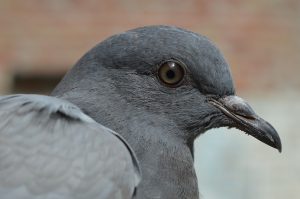Just like birds carry seeds to add strength to the ecosystem, birds can also carry diseases that can sicken individuals. Migrating birds travel long distances and carry disease organisms with them. These bird populations feed on plants, insects, amphibians, reptiles and mammals along the way.
Through their travels and their eating habits, they may pick up bacterial, fungal and viral diseases and then transmit those diseases to people and other pets. Some of that transmission comes through the air or when people handle birds or come in contact with their droppings.
Birds carry bacteria that cause diseases like psittacosis, paratyphoid, vibriosis, salmonellosis. Birds may also transmit fungal disease like histoplasmosis, candidiasis, sarcosporidiosias, blastomycosis and can spread viral diseases such as encephalitis, meningitis, Newcastle Disease and St. Louis Encephalitis.
Nuisance birds like pigeons and seagulls can congregate in large populations near urban areas. Since they have become accustomed to being around humans and eating food people offer to them, they often make their nests on roofs and in structures like attics near people. In these locations birds leave large deposits of disease-laden droppings, which may infect humans and pets through direct contact or through the air.
You can discourage disease dissemination in your city by not feeding pigeons and gulls. You can also identify structures that have become habitats for nuisance birds on their property and contact a professional for removal. Pest control companies can offer solutions to prevent diseases through seagull control and pigeon control, including organic pest control measures.

